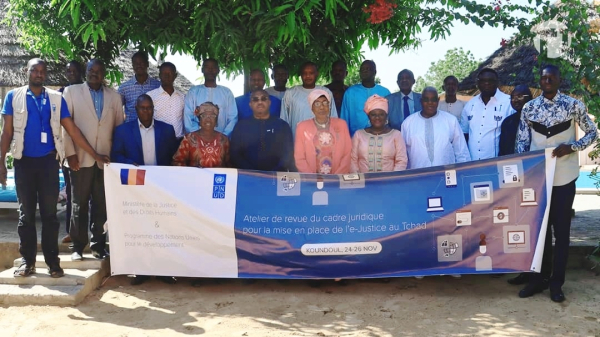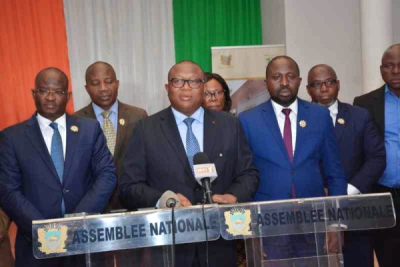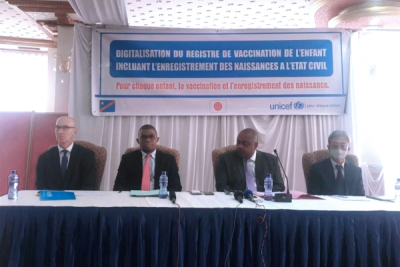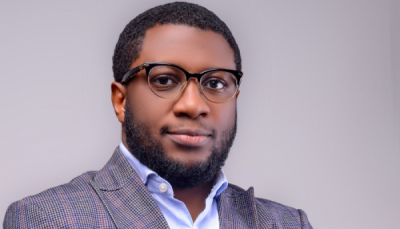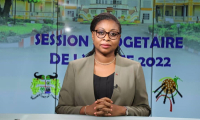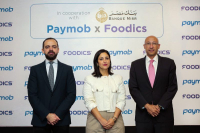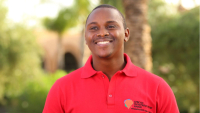In African countries, small-scale farmers contribute a significant portion of the food supply. They are nevertheless affected by several problems including lack of funding, post-harvest, and yield losses. In Ethiopia, a tech entrepreneur has decided to tackle the issue of yield loss by leveraging digital technologies.
Lersha is a digital solution developed by an Ethiopian eponymous startup. It allows access to agricultural inputs for farmers and helps them hire mechanization services and request dynamic agro-climatic advice.
Smallholder farmers can access its services via its mobile app and call center. Once farmers download its app, they need to register their accounts by providing some personal information. The startup has also dispatched agents to familiarize farmers with the tools and services it offers. Via those agents, the farmers can also access its services.
Currently, Lersha has identified more than 44,160 farmers. It has deployed over 88 agents to manage those farmers and added more than 172 mechanization service providers to its database. Its Android app has been downloaded more than 500 times according to stats shown by PlayStore, the official Android Appstore.
In 2022, Lersha was among the eight startups selected for the Global System for Mobile Communications (GSMA) Innovation Fund which aims to support solutions that boost low-income and vulnerable communities’ capacity to adapt to, anticipate or absorb climate-related shocks or stresses.
Adoni Conrad Quenum
In Africa, countries are accelerating the digitation of public services. Every sector is undergoing reforms to make the services accessible to everyone via, digital tools.
The Chadian Ministry of Justice and the United Nations Development Program (UNDP) organized a workshop in Koundoul, South of Ndjamena last November 24-26. The workshop was organized to review the country’s judicial system and lay the foundations for its digitization.
For Louise Bourkou Ngaradoumri, Secretary of State for Justice and Human Rights, this project is of great importance to Chad. "Digital technologies appear like essential tools to serve justice as we are far from one another. By using digital tools, we can identify problems as soon as possible,” she said.
The workshop comes after an experience-sharing session organized by Chad last August, with representatives of the Morrocan and Rwandan judicial systems as participants.
The workshop and the experience-sharing session are both parts of the process initiated by the government a few years ago to digitize the justice system. The process is supported by the UNDP in the framework of its project to support the penal system and institutions). Last June, under that same project, the institution handed computers and office equipment to the Ministry of Justice to improve access to quality justice.
According to Justice Minister Mahamat Ahmat Alhabo, in the digital age, only those who keep up to date with the advances can find a place in the justice system. "Not adapting [to the advances] means self-exclusion because, in Chad, the justice system will be digitalized to rid it of its evils,” he said.
Samira Njoya
Cybercrime is gaining ground in Africa. Sub-Saharan Africa is presented as a region particularly vulnerable to the issue of online scams and large-scale cyberattacks on the rise. Nevertheless, industry players are moving to provide adequate responses.
Last week, the Ivorian parliament approved the draft law amending articles 17, 33, 58, 60, 62, and 66 of the law N° 2013-451 of January 19, 2013, on the fight against cybercrime.
According to Minister of Communications Amadou Coulibaly (Photo, center), who defended the draft law before the parliament, it was necessary to overhaul the rules punishing cybercrime in an environment where the number of such acts is ever-rising with the rise of social media.
Like its African peers, Côte d'Ivoire is confronted by the scourge of cybercrime. The most recurrent acts are sextortion, sexual harassment, identity, and payment fraud.
In 2011, the Ivorian government established a Platform for the Fight against Cybercrime (PLCC). In March 2019, it ratified the Budapest Convention on Cybercrime, which allowed it to benefit from international collaboration in its fight for greater effectiveness. About two years later, it adopted a new strategy to better secure its cyberspace and accelerate its digital transformation to become the African leader in cybersecurity
The amended articles increase the maximum sentences for cyber acts that violate human dignity, honor, and intellectual property rights as well as any illegal act carried out using ICT tools. For example, Article 17 consecrates a one to six years prison sentence and between 20 to 40 million fine for anyone who publishes or distributes child pornography.
Samira Njoya
The support is the result of the agreement signed by the Japanese embassy in Congo and local NGOs in March 2017. It is in line with the government’s ambition to ensure universal health coverage.
Last Friday, DR Congo launched a UNICEF-implemented digital health support project. The project, funded to the tune of US$2.5 million by Japan, aims to develop and deploy a digital vaccination record integrating a module to register births in the Kinshasa, Kongo-Central, Kasaï-Central, and Haut-Katanga provinces. The financial support is provided in the framework of an agreement signed by local NGOs and the Japanese embassy to DRC in March 2017.
According to DRC Minister of Public Health Jean-Jacques Mbungani, the project is of paramount importance because it will help improve the immunization and birth registration rates and also provide health staff and decision-makers with accurate and real-time information on immunization.
Over the past five years, DRC has improved its immunization rate to 85%, UNICEF says. However, the country still faces recurrent epidemics of vaccine-preventable diseases, including measles, polio, yellow fever, and meningitis. Also, the international organization informs that four out of 10 are registered in the civil registration database in the country; 38% of the children under 1 are registered against 40% for those under 5.
The digital health project aims to improve those figures and ensure broader health coverage by providing an efficient and reliable civil registration system and vital statistics.
Thanks to the digital record system, health personnel will be able to, among other things, monitor the status of birth registration and vaccinations of each child by recording this information in a national database. This system will allow for individualized follow-up and ensure that every child receives the necessary vaccines even if the latter is moved to a different region. "Ultimately, this will greatly improve the accuracy of administrative data to better estimate immunization coverage, including routine immunization and Covid-19," said Hiro Minami, Japan’s ambassador to the Democratic Republic of Congo.
Samira Njoya
With the technological revolution underway, Africa needs to build its tech talent pool. The first step in that endeavor is to teach the youth how to code.
EaziCode is a digital platform developed by a South African eponymous startup. It connects young people who want to learn to code with experienced tutors.
"We were able to identify in our research that most local curriculums for primary and secondary education in South Africa do not have programming as a taught fundamental skill. Within an increasingly digital world, our goal is to bridge this gap and enable students to learn to program and build creative products at a much younger age," said EaziCode founder Thato Tshukudu to explain why the platform was launched.
Most of the courses offered feature a variety of fun programming activities designed to stimulate creativity. The curriculum is inspired by Google and the tutors are computer science students from South Africa's top universities trained to deliver the courses pedagogically.
EaziCode offers free and paid sessions. About 20 learners are taken in monthly for the paid sessions against some 30 learners for the free sessions monthly. At the end of their training, every learner receives a completion certificate.
According to Thato Tshukudu, the startup is mainly focused on the South African market but it plans to extend to other African countries. "We currently have two paid courses, introduction to web development and a Scratch course, which we have seen great financial success with. Due to our business model, we have very few operating expenses and thus it is easy for us to make a profit. We do believe that we are still in the early stages of our growth but with the current success of all our courses, potential partnerships shortly as well as our focus on growing our selection of courses, we hope to see an exponential increase in turnover," he indicated.
Adoni Conrad Quenum
The entrepreneur has over 10 years of professional experience in the African supply chain industry. Through his haulage company, Haul27, he wants to address the supply and demand imbalance in the current logistics ecosystem.
Sehinde Afolayan (photo) is a Nigerian entrepreneur committed to improving the African logistics sector. He is the co-founder and CEO of Haul247, a technology platform that aims to bridge the growing gap in access to trucks and warehouses in Africa.
Through Haul247 -founded in 2020, he connects businesses to transportation and warehousing services. The tech platform manages companies’ end-to-end logistics to help them reduce costs and save time. It aims to be the go-to support for businesses in Africa.
"Most companies cannot accurately predict and forecast since different vendors handle transportation and warehousing needs. This makes it hard for them to control, distribute and plan their logistics requirements effectively. […]In response to this, Haul247 was birthed to be the “Airbnb” for trucks and warehouses in Africa,” Sehinde Afolayan explained in September 2022.
According to Nigerian media, “Haul247’s value proposition is simple- a unique platform offering opportunities for clients to transport and store their goods in one logistics ecosystem.” The platform has already integrated fourteen fast-moving consumer goods companies and moved more than 31,530,900 shipments. It has more than 151,000 square feet of warehouse space available in multiple locations.
Thanks to Haul247, Sehinde Afolayan became one of the beneficiaries of the Google Black Founders Fund 2022. The entrepreneur founded his first firm in 2007. Called Afolayan Farms, the firm specialized in the production of day-old chicks, catfish, and table eggs and later extended its services to commercial hatchery and processing.
In 2009, its founder joined Davton8020 Consulting Company as a business development executive. From 2012 to 2020, he officiated as the managing partner of B2B commodities trading company Astem International Company Ltd. Concurrently, in 2015, he pursued an MBA Summer internship as a product manager at Airtel Nigeria.
Melchior Koba
The country wants to position itself as the reference in digitization in West Africa and leverage ICTs for efficient socio-economic development.
Beninese Digital Minister Aurelie Adam Soulé Zoumarou (photo) recently defended her Ministry’s 2023 before the parliament. The projects included in the XOF31 billion (US$49.2 million) budget include high-impact digital projects and reforms that will benefit the whole country.
According to the government official, the projects include the extension of connectivity to every region -including rural areas- to accelerate the digitization of the country’s administration. They also include the improvement of digital use and confidence and actions to make communes more attractive with digital transformation. Another project is the modernization of Benin’s media to make it more attractive.
The budget also plans for the development of new training curricula to enhance the training offered by the public school for digital professions as well as the development and promotion of artificial intelligence and data management applications useful to national programs and finally the continuation of the Smart Gouv project.
The 2023 budget is 23.57% higher than the XOF24.252 billion Minister Zoumarou presented before the parliament for 2022. According to the official, the 2023 budget is higher because the country needs to pursue and enhance some of the projects launched in 2022. Those projects include the digitization of public administration and the extensions of e-services in every sector.
Samira Njoya
The partnership aims to boost the development of the food and beverage sector in Egypt’s digital economy, in line with the country's Vision 2030.
Last Tuesday, restaurant management solution developer Foodics and fintech startup Paymob signed a partnership agreement to empower the food and beverage sector in Egypt.
The partnership aims to combine Foodics' restaurant management system (RMS) with Paymob's point-of-sale (POS) devices, creating a seamless end-to-end solution for restaurateurs and their customers.
"Tech enablement and the digital economy are critical factors for the acceleration of the F&B industry’s growth. By bringing Foodics and Paymob together, two regional technology powerhouses, this will serve to modernize the F&B sector in Egypt and advance the shift to cashless payments, fueling both growth and digital transformation,"said Belal Zahran (photo, left), Foodics country manager in Egypt.
In Egypt, the food and beverage industry is a key facet of the economy. The country’s 104 million population represents a huge domestic market but, it is also the largest market in the MENA region. According to the "Food & Beverage Market Size, Share, Growth Prospects and Opportunities 2020-2026" study, competition will likely intensify in the Egyptian food and beverage sector with emerging applications and an expanded product portfolio.
Through the partnership, the two regional tech powerhouses want to build the first wireless backend API integration for the Egyptian F&B sector. The collaboration will enable Foodics restaurants to accept all types of card payments using Paymob's point-of-sale devices. This will solve two major issues for restaurants, namely automating the reconciliation and payment processes to provide faster order processing and error-free, frictionless payment experiences.
Samira Njoya
The solution helps Mauritians in need get loans and individuals help their compatriots while making small profits in the process.
FinClub is a fintech solution developed by a Mauritian eponymous start-up, launched in 2018. It allows users to borrwwo money directly from other users with no middleman in the process.
“FinClub acts as a facilitator to connect Lenders directly with Borrowers. Using a seamless and fully automated online platform, with minimal overheads, we pass on the savings to Borrowers who get competitive loans and to Lenders who get higher interest rates,” the startup explains on its website.
To access its services, users can register their accounts, either as lenders or borrowers, via the solution’s mobile app -accessible for Android and iOS devices-. Then they need to upload the required documents.
Once fully verified, borrowers can start borrowing funds for emergency purposes and lenders can put their money to work as FinClub connects to “credit-worthy” borrowers.
Currently, the solution’s Android app has been downloaded more than a thousand times on PlayStore. In 2022, FinClub was selected along with seven other Mauritian startups to take part in Viva Technology, one of the European most important tech events that help gain national and international exposure.
Adoni Conrad Quenum
The trained accountant chose to venture into the agritech sector by developing an e-commerce platform that sells fresh fruits and vegetables. The venture has already earned him local and international recognition.
Elia Timotheo (photo) is a Certified Professional Accountant who graduated from the Tanzanian National Board of Accountants and Auditors (NBAA) in 2018. He is also the founder and CEO of East Africa (EA) Fruits Co. a food distribution company that aims mission to improve the lives of tens of thousands of Tanzanian farmers and small businesses.
EA Fruits, which was launched in 2013, wants to reduce post-harvest losses by collecting, processing, storing -thanks to cold chain technologies when needed- and distributing agricultural products. On its online platform, the company markets all types of food, from cereals to fresh fruits and vegetables...
“Roughly half of what farmers produce never reaches the market, and this loss is spread out across the farm-to-market value chain. First, farmers may lack the knowledge and training to properly care for their farms, produce and harvests, resulting in 20 to 25 percent of losses. Second, farmers sell produce to brokers who use inappropriate vehicles to transport perishable produce, leading to another 10 percent of losses. Lastly, in the market, it’s very difficult to sell all the produce in one day or even two, yet there are no storage facilities for a truckload of produce that just spent days travelling hundreds of miles in inadequate conditions. All this results in severe losses for farmers who fail to reap the fruits of their hard work,” Elias said in 2020 while explaining the rationale behind the creation of EA Fruits.
“To change this, East Africa Fruits establishes a relationship with smallholder farmers and provides training, food processing, storage and market access using cold-storage transportation. This process extends the shelf-life of produce and reduces post-harvest losses,” he added.
Since 2008, the trained accountant is a member of the advisory board of Changbay Sonic Hotels in Tanzania. In 2013, he co-founded the processing and distribution company AMEJ Investment Limited. Three years earlier, he had co-founded 7 Stars Computers Limited, an “affordable” computer marketing firm when he “realized that computers and laptops had vital importance to college students and they would not afford to buy by then.”
The serial entrepreneur kicked off his professional career, in 2010, by joining the foreign exchange bureau Kibo Palace Group as an exchange manager, sales assistant, and customer relations officier. In December 2011, he worked for the Ministry of Agriculture, Food Security, and Cooperatives as a field representative. Some 12 months later, he joined the Ministry of Finance and Economic Affairs as a junior accountant.
Thanks to EA Fruits, he has received several awards and recognitions, including the African Entrepreneurship and the SEED Africa Awards in 2015. This year he was also one of the 50 finalists of Africa’s Business Heroes.
Melchior Koba
More...
On the sidelines of the 2022 Climate Change Conference (Cop27), Jean Michel Canto, Orange Middle East & Africa's Director of Sustainable Energy & Partnerships, gave an exclusive interview to We Are Tech. During the interview, he highlighted the French group’s climate commitment in Africa.
We Are Tech: Why is Orange taking part in the Cop27?
Jean Michel Canto: Several years ago, Orange made clear environmental and climate commitments. For a long time, we are committed to these issues, which are very important to us. We have already taken several actions in our markets to reduce our environmental impact. Through the Cop27, we want to support governments in reaching their ecological and energy transition goals. We want to work with governments to develop renewable energy, to develop ecosystems, and circular economies. At the Cop27, Orange Group, through the Director of the Environment, is reiterating its environmental commitments and its availability to support governments in their projects to their reduce carbon footprint. We are ready to work daily with countries to collectively achieve these commitments.
WAT: You keep mentioning support to countries. What does such support concretely entail?
JMC: One of the major challenges in achieving our environmental objectives and for countries to achieve theirs is access to renewable energy. The second axis is the whole ecosystem of the circular economy.
Presently, it's true that regulations don't allow us to do exactly what we would like to do, notably build and develop solar farms and directly use this renewable energy. But by working hand in hand with countries, we are confident that we will be able to change these regulations and attract the necessary investments in African countries to multiply the deployment of solar and wind farms wherever possible.
The circular economy is the recycling of telephones and telecom equipment that we use every day. For renewable energy, as an operator and private industry, we can attract the capital needed to develop renewable energy in Africa. In Africa, no factories are specializing in refurbishing telecom equipment and phones for new use. Our ambition is to work with governments so that such factories can be set up in Africa.
For the time being, telecom equipment and phones are sent to Asia and Europe to be refurbished. We are sure that the development of this type of activity on African soil will create jobs but will also contribute to the development of the circular economy and reduce raw material extraction, which is harmful to our planet.
WAT: Phones become electronic waste when they are no longer useful. This is obvious but how does Orange’s infrastructure harm the environment?
JMC: Like every activity, industry, and company, we need electricity. So do the infrastructure through which we provide services to our subscribers. Using non-renewable energies such as diesel to guarantee the continuity of our services in certain areas with poor access to electricity accentuates the impact of our infrastructure on the environment. Put simply, it is through carbon emission. Renewable energy greatly reduces this carbon footprint. We are already working with our infrastructure and equipment suppliers to ensure that they have a strong commitment to limiting their impact on the environment right from the design stage.
Objectively, in Africa, the major factor contributing to our carbon emissions is the use of energy to power all our telecom towers, data centers, etc. This is why we are insisting on the use of renewable energy sources. That's why we put a lot of emphasis on working with countries or governments to develop renewable energy. A few years ago, we were using so many generators to power our telecom towers. But we are gradually deploying solar panels, which generate clean energy, to replace them.
Digital technologies are great tools. They enable videoconference and teleworking but telecom infrastructures are mostly needed for all that. With eco-responsible telecom infrastructures and equipment, we can greatly limit the impact we could have on the environment and the climate.
WAT: Orange has developed a program called "Net Zero Carbon 2040". What is it about?
JMC: Net Zero Carbon 2040 is Orange's strong commitment to the climate. It means that we are committed to strongly reducing our carbon emissions through the use of renewable energy. We are aware that there will still be an incompressible minor part of our carbon emissions. Not every activity can be fully clean. To compensate for these residual carbon emissions, we must commit ourselves to solutions that are called carbon sinks, i.e. solutions that will capture the CO2 that we will emit.
We have already launched major carbon sink projects in countries like Senegal, Cameroon, and Madagascar. We have made commitments to plant trees and protect the mangrove ecosystem. We have signed a partnership with experts in the field. Orange is specialized in the telecommunication industry. So, we rely on environmental experts for climate-related issues, including the protection and development of the mangrove, which is a great carbon sequester. We are committed to taking such actions in Africa and we believe that thanks to them, we can meet our net zero carbon goal by 2040.
We have a milestone for 2025. This milestone is that by that time, more than half of the energy used by the group must be generated by renewable sources. This is a big challenge. That's why we continue to power our sites with solar panels and do the same for our data centers, which are energy-intensive.
In Africa, we have more than 6,000 telecom sites equipped with solar panels. We will continue and accelerate this energy transition to the rest of our equipment. In countries such as Guinea, Sierra Leone, Madagascar, and Jordan, more than half of the energy consumed by the network comes from renewable energy sources that we produce ourselves. If possible, we would like to develop solar and wind farms, to inject this clean electricity into the electricity grid of the countries in which we operate and use this clean electricity on all our telecom towers. In addition to that, we have commitments to reduce our carbon footprint on what we call SCOPE 1 and 2, fuel and electricity namely. Orange as a group plans to reduce the use of such energy sources by 30%.
WAT: Orange works with telecom tower managers. How does the group reconcile this operational cost management with its environmental commitments?
JMC: We work with tower managers (towercos) in five countries. In the twelve other markets, we operate our own towers. When we operate our own towers, we call on experts to help us with this transition. We call these experts ESCOs. These energy experts from the telecom industry help us to modernize our energy production chains in our telecom towers, adding as much solar energy as possible, and adopting the right size for our current and future needs. In Africa, all three tower managers we work with have renewable energy commitments for 2030, 2040, and 2050.
WAT: In addition to reducing the environmental impact of its business activities and carrying out direct actions in favor of the climate, such as carbon sinks, how does Orange's investment in the environment integrate the well-being of the African population?
JMC: The impact on society is as important as the impact on the environment. Through all the direct climate activities, such as the protection of the mangrove, which meets our environmental objective, Orange also aims to develop the entire ecosystem around it to benefit populations. Training will therefore be organized and new jobs created as we know that the mangrove produces wood and by-products can therefore be produced and sold. We have included support in this very important project. We also are deploying Orange Digital Centers (ODC) everywhere in Africa. Through those infrastructures, we will raise awareness of environmental issues by organizing activities like coding competitions focusing on the environment for young people. Africans are awaiting those environmental projects because they will be the first parties affected by climate change. With the drought in some regions, fishing villages disappearing in Senegal, etc, those populations are beginning to feel the impacts of climate change.
WAT: Can we consider Orange Energie as one of the components of Orange's environmental action?
JMC: Yes, it is. Orange Energie allows access to solar kits, which are symbolic since by definition solar kits provide renewable energy for schools, professionals, etc. It is not limited to solar kit distribution, however. It also projects to build mini-grids, namely small solar farms that can supply one or two villages with no access to energy.
Once again, these are, by definition, renewable energies since they are solar fields that will be deployed. These are two examples that bring essential services to the populations, in addition to responding to strong environmental issues.
The environmental issue is a broad subject and Orange is fully committed because it is important for us and the development of the African continent.
Interview by Muriel Edjo
The digital solution aims to help people stay fit.
Eat & Fit is a digital platform developed by a Tunisian eponymous startup to help its users have a good nutritional follow-up. It allows the said users to buy diet foods and have them delivered.
The balanced and varied meals it offers help users maintain the nutritional proportions required for specific purposes, be it weight gain, weight loss, or muscle toning. Every week, the platform customizes the meals and adapts them to help its users quickly reach their goals.
To access its services, users must register, subscribe to one of its plans and then meet a nutritionist for a complete assessment. The result of that assessment informs the instruction given to chefs for the meals delivered to every user. Users also receive nutritional and sports support with regular follow-up.
For a healthier environment, Eat & Fit seeks the best ways to reduce its ecological footprint. It also adopts a "zero waste" policy by calculating the exact amount of ingredients needed for every meal. Currently, it is only operational in Tunisia but, it plans to expand to other countries in the region.
Adoni Conrad Quenum
The serial entrepreneur has already helped create five startups in Africa. His latest venture embodies his desire to build a new credit and trade infrastructure in Africa and emerging markets.
Kageni Wilson (photo) is a Kenyan entrepreneur and the co-founder/CEO of fintech startup Finplus Group. With the latter, he aims to help close the “massive $5-trillion credit deficit faced by SMEs in developing countries each year."
To achieve its goal, the startup developed Finplus, a digital finance and e-commerce software that provides three main services. First, it enables banks and micro-lenders to lend on a large scale. It also helps consumer goods companies digitize end-to-end sales by effectively transforming their supply chain into a demand chain. Finally, it unlocks access to an instant credit line for tens of millions of SMEs and individuals in emerging markets. It has already processed more than US$1 billion in transaction value in the Kenyan, Ugandan, Tanzanian, eSwatini, and South African markets. It has also enabled access to credit for more than 3 million SMEs and individuals.
"Today, our software helps an individual or small business access credit or transact with financial institutions and suppliers every 10 seconds. We have come a long way since processing our first transaction in April 2017 and it’s all thanks to our customers trusting us to manage their relationship with millions of end customers and over a billion dollars of value. It’s an enormous responsibility and one that gives us pride as an African company building in Africa for Africans," Wilson said in November 2022.
Since 2016, the latter is a mentor in KCB Bank Group's KCB 2jiajiri program. He is also an iHub Nairobi Outreach Ambassador and a member of the non-profit crowdfunding platform 1%Club’s team.
The serial entrepreneur also co-founded the education platform Usomi, in 2012. About one year earlier, he had co-founded cloud computing service Ionacloud after co-creating digital media production company Planetary Pictures in 2011.
From 2014 to 2017, he was the founding partner of AllenHark Group, "a collective of financial technology companies building plug and play software solutions for Financial Services delivery in East Africa."
Melchior Koba
The Republic of Congo is gradually making its way toward the complete digitization of its public services. To accelerate the process and reach its goals by 2025, the government is multiplying partnerships with international companies specializing in digital issues.
Canadian company Casimir Network signed Tuesday (Nov.22) a memorandum of understanding to support Congo in its digital transformation.
The MoU was signed by the Congolese Minister of Posts, Telecommunications, and Digital Economy, Léon Juste Ibombo (photo, left), and Jean Michel Casimir (photo, right), CEO of Casimir Network. It provides, among other things, the training of local talent on innovative technologies, the construction and operation of a data center that will host servers for blockchain services, the transfer of knowledge concerning the operation of the data center, and the development of cybersecurity and personal data protection programs. It also plans for support and research, and the development of the African Center for Research in Artificial Intelligence (Caria).
The memorandum aims to “help our partners create and operate the data center here in our country. Indeed, the country of a data center will allow our partners to support and assist us in the operationalization of Caria,” Minister Leon Juste Ibombo said.
Earlier this year, Congo launched an African Center for Research in Artificial Intelligence (Caria) which serves as a framework for in-depth research for students and other researchers on the continent. It is the result of cooperation between the Congolese government and the United Nations Economic Commission for Africa (ECA). Caria supports other major digital projects underway in the framework of Congo’s digital development plan, "Congo Digital 2025.”
The agreement between Congo and Casimir Network is expected to take effect in early 2023. This week, a site visit will be organized to verify the location of the future data center. "We hope everything will be finalized and we will launch operations by September 2023," said Jean Michel Casimir.
He added that the data center will be based on blockchain technologies since they are going for an ecological solution. “Congo offers green energy generated by a hydroelectric dam. We were looking for stability and we found it here,” he indicated.
Samira Njoya



